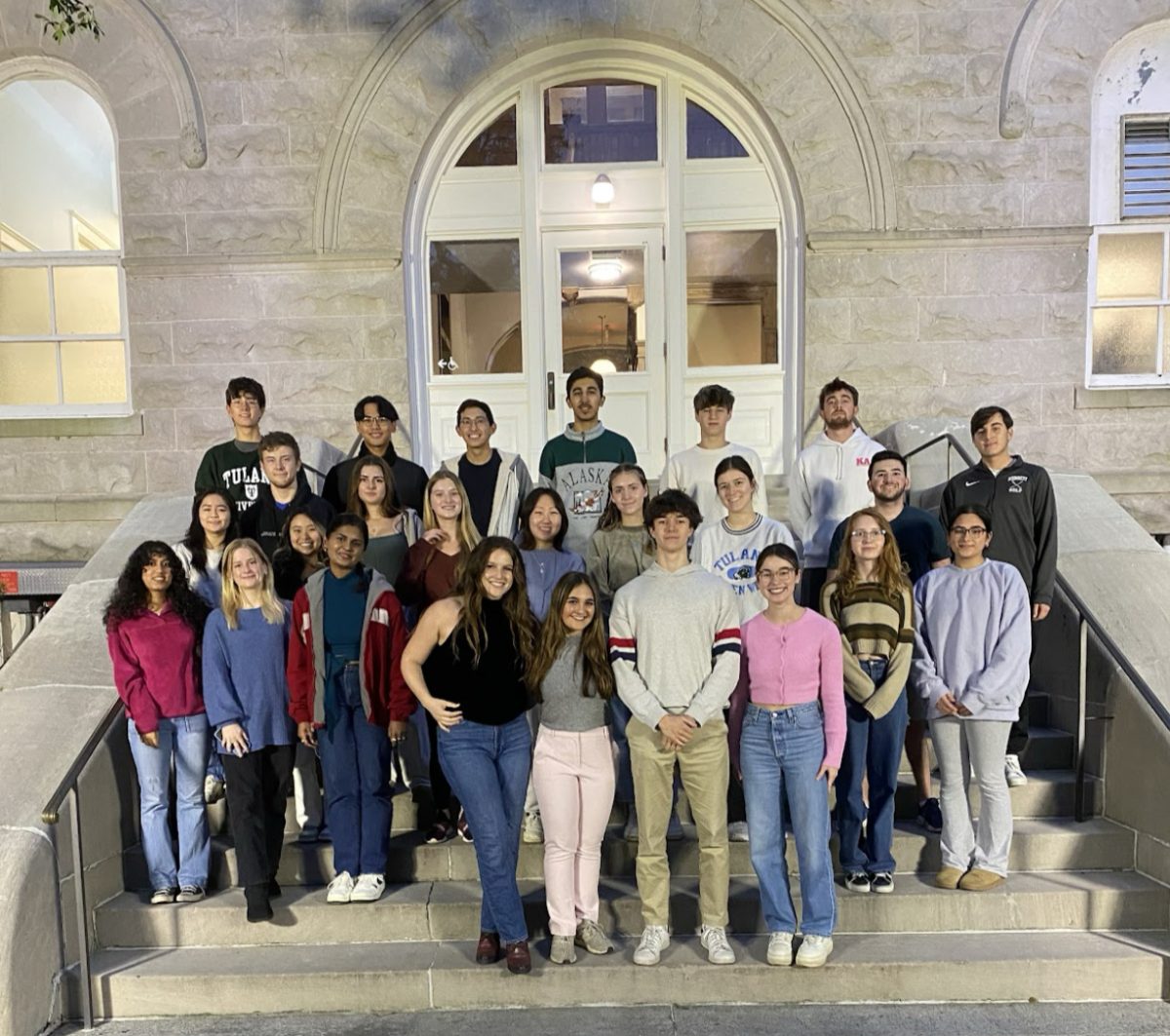Tulane Synthetic Biology Club, more commonly known as TU Synbio, provides a welcoming space for inexperienced researchers to gain laboratory experience and contribute to projects, such as the one the Synbio club recently submitted to Global Open Genetic Engineering Competition, an international synthetic biology competition.
“We want people who are scared, nervous and threatened at the idea of science to come and join and learn,” said Synbio club Vice President Isabella Kulstad.
Nicholas Sandoval, a professor of the chemical and bioengineering department, mentors the club, which is funded by a National Science Foundation award. All laboratory work and club logistics are completely student run.
The club’s main focus is on CRISPR technology, an acronym for clustered regularly interspaced short palindromic repeats. CRISPR systems are genetic engineering tools that use short programmable DNA sequences to target nearly any genetic sequence for editing. According to the club’s GOGEC research paper submission, CRISPR has the “potential to free humans from genetic disease by inserting genes that cause a positive phenotype and removing genes that elicit a harmful one.”
The club’s most recent research project, which was submitted to GOGEC, aims to develop functional crRNA sequences for a CRISPR-Cas12a system to alleviate the problem of spontaneous recombination, which “sometimes results in errors like the deletion of entire DNA sequences,” according to the club’s GOGEC research paper submission.
“We can use CRISPR as one of our ways to fix [food insecurity in New Orleans] and kind of make plants that are a little stronger,” said Kulstad. “For example, adding more Vitamin A into tomatoes, adding pesticide resistance.”
The project has been in the works for about five years, and Synbio has been involved for the past three years. The club took their biggest strides towards finishing the project this year.
“We’ve had a lot of beautiful things coinciding,” Kulstad said. “We have a lot of students who are super interested, we have an [executive] board that’s super seasoned, it’s just all good things coinciding. The amount of passion we have throughout the club is just what makes it flow.”
Last year, the club struggled to find a single person to fulfill leadership positions. This year, they had 11 candidates running for four different leadership positions and an ever-growing number of interested students joining.
“It’s not just something they’re adding to their resume, they show up and want to be here and contribute,” said Treasurer Mary Lorino. “It’s a really special community. I’m very proud of the growth we’ve had.”
The club will present and compete in the virtual competition from Feb. 23 to 25. If they win, they will receive funding for future research projects. This would be a dream come true for the club.
“We have so many people who are interested, and our funding isn’t really there,” Kulstad said. “That is wonderful, but it’s not sustainable, so this gives us the ability to continue our mission of helping undergrads get well acclimated to lab skills.”
The club has already drafted a proposal for their next project, which also employs the CRISPR-Cas12a system. The main goal of their next project is to combine two CRISPR systems to achieve 100% gene silencing, but with “catalytically dead” CRISPR, which is a safer method of gene editing that does not make cuts to the DNA.
Club members, experienced or not, have the opportunity to do research in the Sandoval Lab. Kulstad encouraged anyone interested in joining to “apply, join in, get as excited as we are about synthetic biology and really just come be a part of this incredible community.”




Leave a Comment